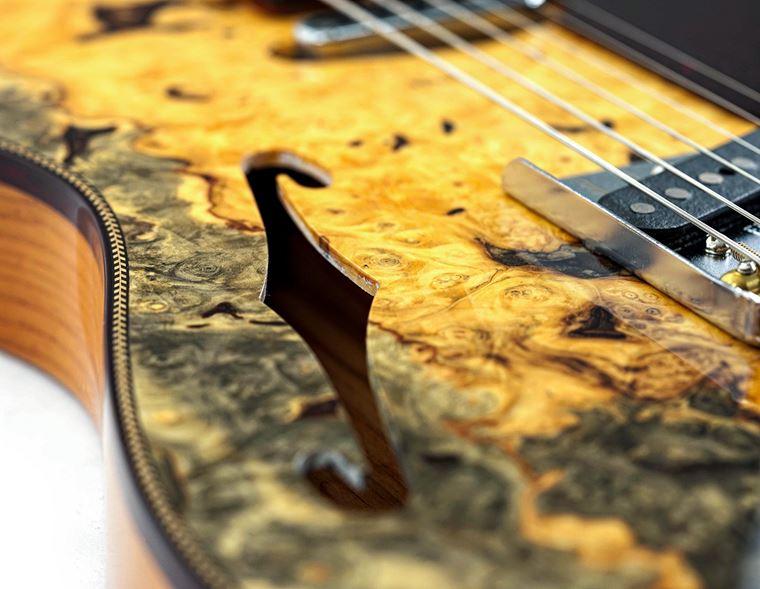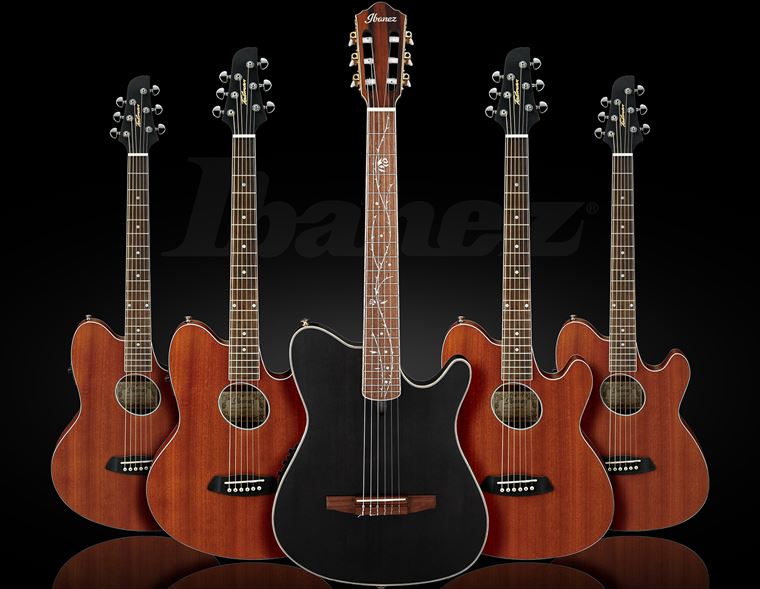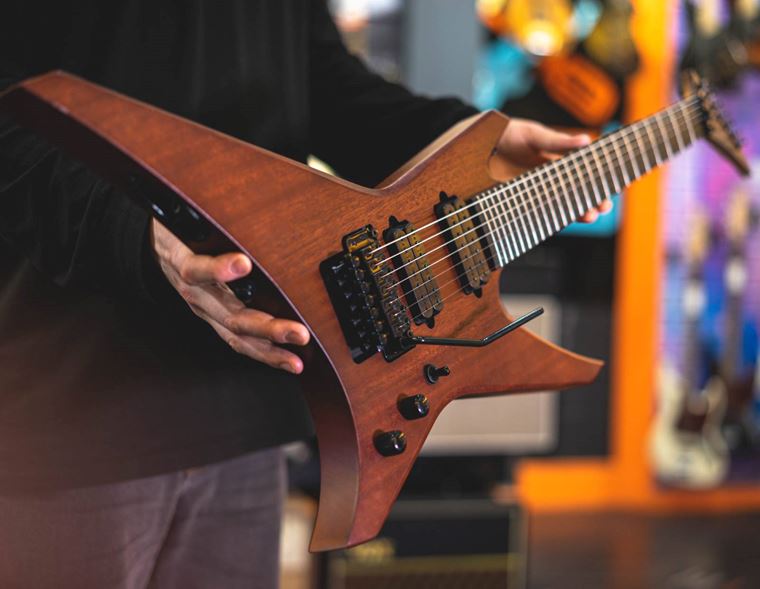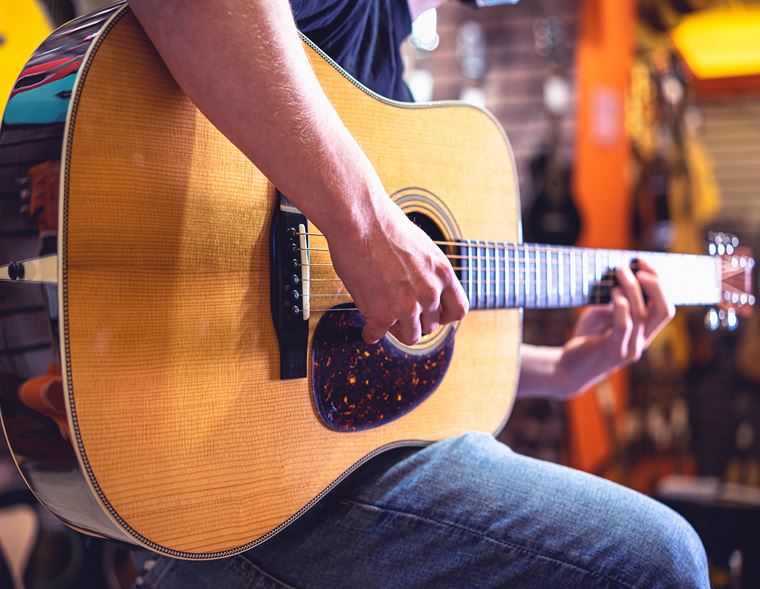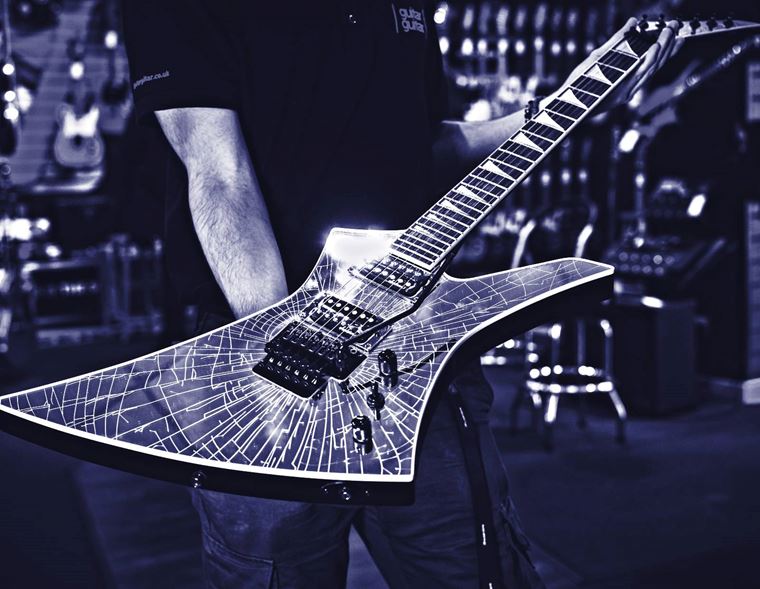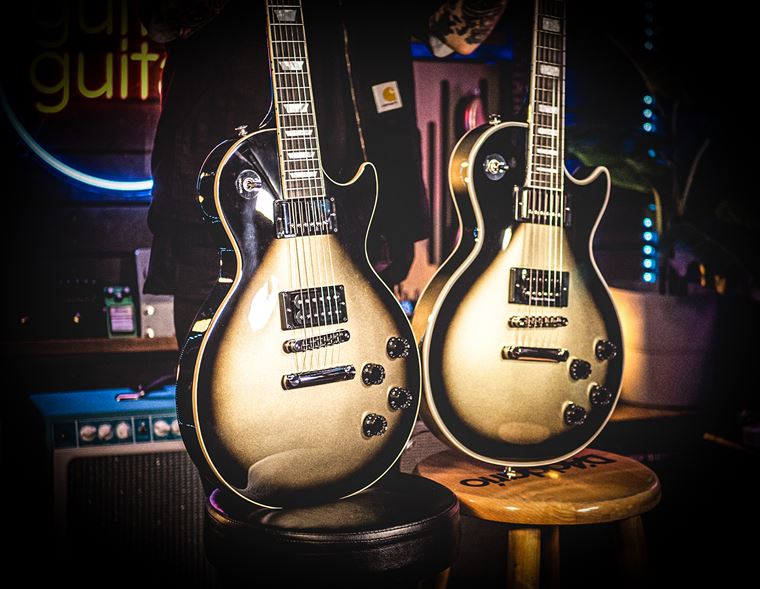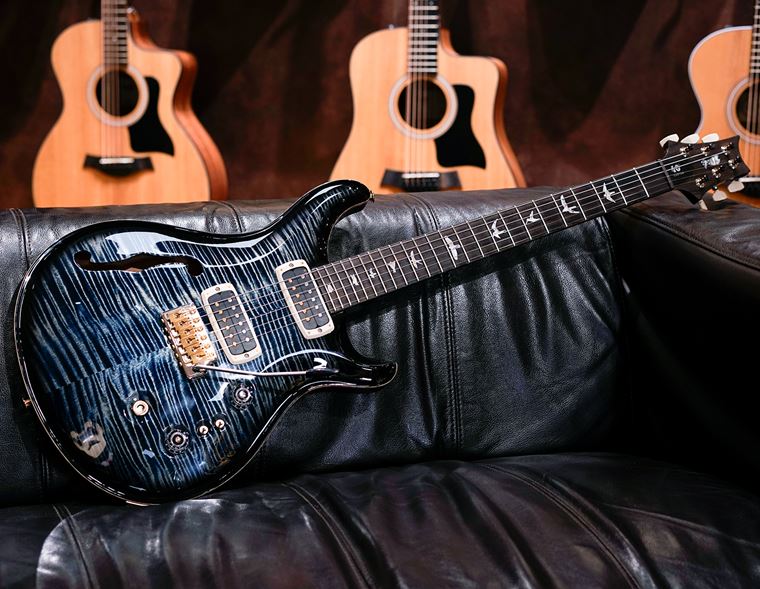10 Guitar Goals for 2025: Beginner to Intermediate
New Year’s resolutions can come with a lot of pressure: ‘go back to the gym’; ‘learn Spanish’; ‘finish building that mess of a shed that you started last year and left half-done’; and so on. Starting the year afresh is great, but that energised feeling can quickly turn to overwhelm and resistance due to unnecessary pressure.
Today, this blog offers ten potential paths forward in 2025. It’s for the beginner and intermediate player, but I often think that a ‘beginner’s mindset’ is actually the most important place to align yourself for most things in life. Beginners are open to advice, eager to learn, and they experience that visceral thrill of understanding and employing new concepts. In short, we could all do with being a little bit more ‘beginner’, regardless of our experience.
With that attitude in place, I invite you to try out some of these ideas this year, whenever it feels like a good time to do so. These guitar goals are a mix of things that either I’ve picked up myself or from other guitarguitar team members: all experienced players, in other words!
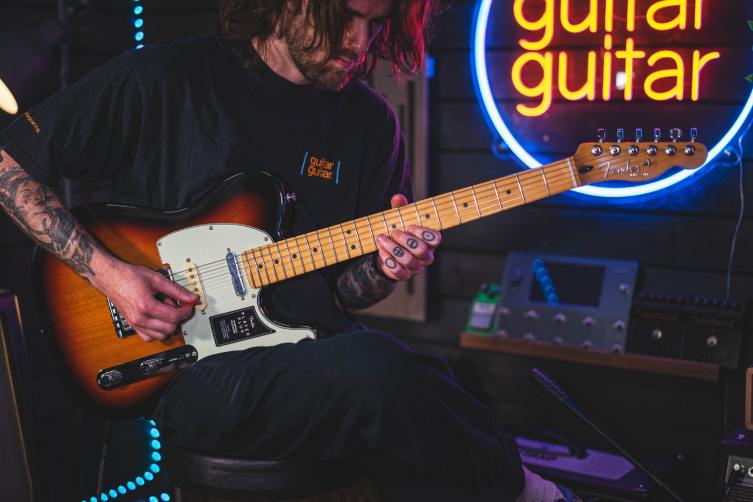
Contents
Learn a New Genre or Style of Music
Get Your Guitar Properly Set Up
Finally Tackle That Technique That’s Giving You Problems
Learn a New Genre or Style of Music
Most music fans enjoy listening to a number of different music styles. It’s natural to want to hear different colours, rhythms and viewpoints in our music listening. Motown soul music, for example, occupies a different space to 70s classic rock, even when there can be stylistic crossovers here and there. Detroit techno and Indie rock are pretty much unrelated, but that doesn’t mean you won’t like both equally.
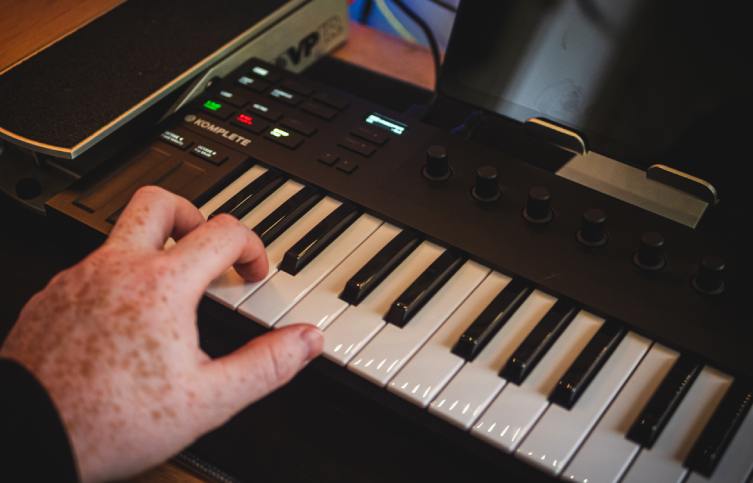
So, if it’s perfectly normal to like wildly disparate genres of music, why do so many of us guitarists then go and plough through the same old riffs and licks when we pick up our instrument? There seems to be a massive divide about what we take in as music fans and what we put out as guitar players.
This first mission, then, is to try out some musical flavours you’ve yet to test, and then - critically - bring them to your instrument. You’ll be pleasantly surprised at how far your fingers will stray from the usual places when you decide to learn, say, a trumpet solo from a Buena Vista Social Club song.
Once you have these new pathways learned, your playing will never be the same again.
Try an Extended Range Guitar
The metalheads reading this won’t require much encouragement here, but I feel like everyone can learn a great deal about their playing by trying out an extended range guitar. Whether you go for a 7 or 8-string is immaterial: it’s the act of putting your hands on an instrument that’s close to what you know but still a little ‘alien’ to your habits that matters.
Playing an extended range guitar obliges you to be more mindful about what you’re doing. Of course, you’ll learn and adapt until it’s normal again, but in doing so, you will earn lots of insights about your playing.
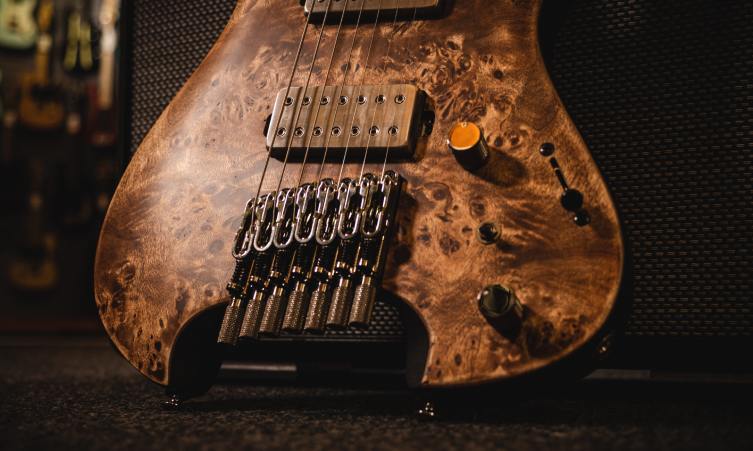
Get Your Guitar Properly Set Up
Now, this one isn’t a crass advert for our in-store guitar techs (though they are the best in the biz!), but more a call to pay attention to the setup of your guitar. If you’re a beginner, you may not actually have had much experience in this department at all, so I do advise every player to get their guitar professionally set up at least once in a while.
There are certainly things you can do yourself at home if you have the correct tools and information, but my years of experience have taught me that the difference between a good set up and a great one can sometimes be millionths of an inch.
If you have niggles about your guitar that show up when you play (high strings, buzzing, tuning problems etc), then getting a good once-over by a qualified, experienced tech can actually be night-and-day for your subsequent playing.
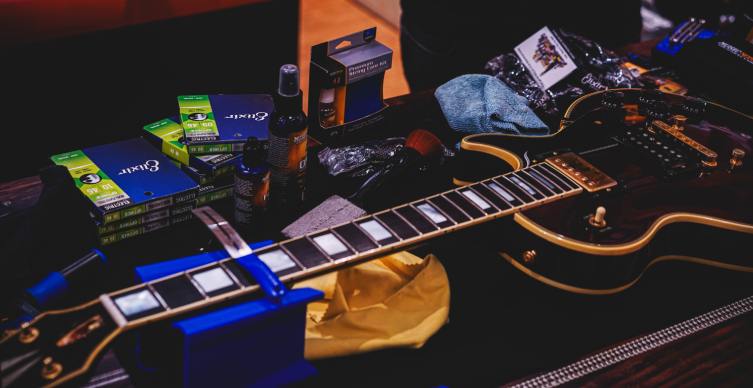
Mod Your Guitar
This idea could be seen as an extension of that last one, since they do relate a little. I’m talking about modifying your guitar, and there are not only loads of ways to do this, but loads of reasons why you’d want to.
One very effective thing to do is to change out your pickups. Whilst I wouldn’t say that pickups are everything when it comes to your tone, pickup swaps can give you more output, less output, greater clarity or even just more wires attached, so that you can introduce additional switching.
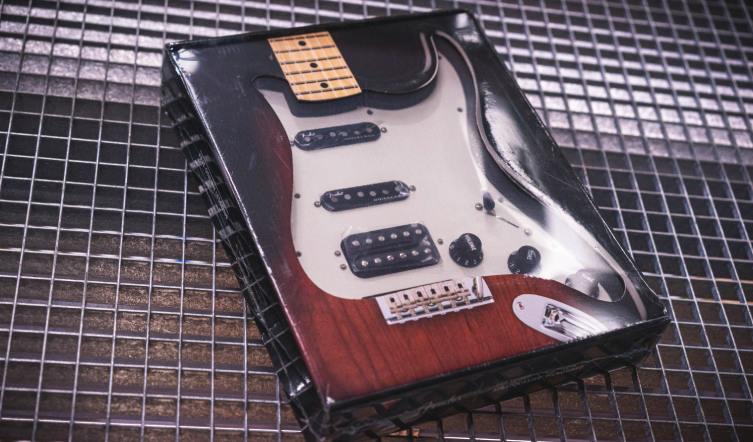
That leads me to another popular method of modding: adding extra switching. Coil taps, coil splits (not the same thing) and phase switching are all effective and relatively straightforward things you can do with your guitar’s circuit to change up the sound and breathe new life into your playing.
Lastly here, ‘modding your guitar’ can be as simple as changing the pickguard to alter the guitar’s look. It doesn’t have to be expensive or complicated!
Experiment with String Gauges
The most popular string gauge in the world is 10-46, but that doesn’t mean they are the correct strings for you, and you’ll only find out by trying other sets! Even going to gauge 9 will make string bending and soloing a heck of a lot easier, so if you feel like your fretting hand is struggling somewhat, then a switch to a set of 9-42 strings could be the secret that unlocks the guitar for you.
I wouldn’t recommend straying too far from your initial gauge unless you understand the tweaks you’ll need to make to your truss rod and bridge in order to accommodate the change. However, small changes - especially if they prove to be temporary - shouldn’t have you or your guitar losing any sleep.
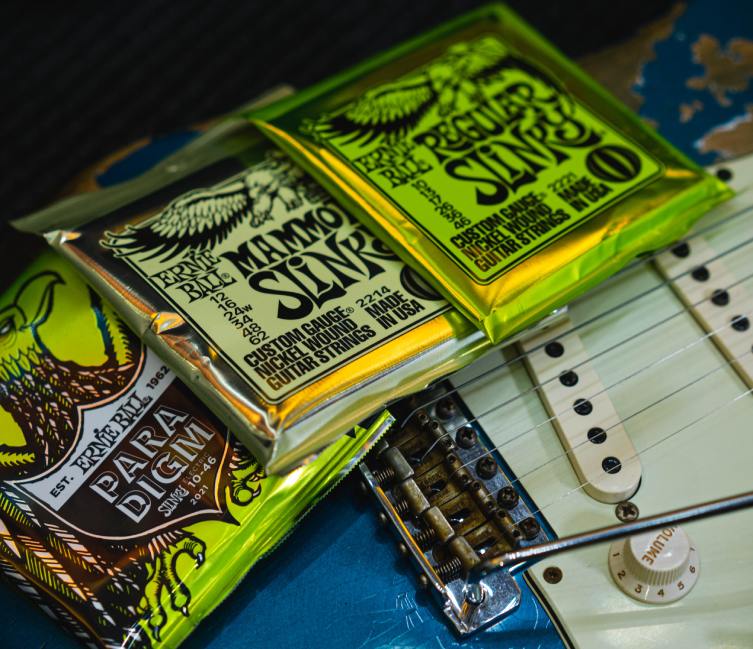
Finally Tackle That Technique That’s Giving You Problems
This is pretty straightforward advice, but I also know how much we as players tend to stick to our strengths and avoid our weaknesses, so it bears saying.
There are technique-related things that you want to be able to perform on the guitar but can’t. It may be that you want to tap, sweep pick, ‘thump’, or try selective picking. Whatever that ‘thing’ is, you can either continue to avoid it forever and leave that gaping void in your playing, or you can face it head on and work on it.
You know what it takes to achieve these techniques? It’s not more money, and it’s not bigger hands. It’s dedication and persistence. It’s breaking that ‘thing’ down into small steps and going over them again and again and again until you can do it. That’s it! There’s no secret here at all: it’s all about smart graft.
There is no technique on the guitar that is beyond you. Please trust me on this, because I’ve seen both sides of this too often not to be right about it: people who struggle and persevere will push through those difficulties and come out the other side with a new technique and a great sense of achievement and satisfaction. They’ve proven to themselves that by repeatedly working away at it, they have achieved what was once beyond their capabilities.
Learn Some Theory
The guitar is an instrument that you can spend decades playing effectively without knowing a single thing about music theory. Plenty of people do that, but when there’s an insanely full and wonderful world awaiting you when you do learn even a little theory, why wouldn’t you?
Curiosity can be a real factor in learning: what is the ‘7th’ in a G7th chord? You can hear the difference between an A major and an A minor, but what is major and what is minor? Just being curious to know the answers to this stuff will put you on the road to understanding. Once you know, you can apply it all over the guitar fretboard and it’s like a scene in the Da Vinci Code: suddenly things start glowing, adding up and making a lot of sense! Doors open, connections appear, and your guitar playing elevates far beyond the cliches you’ve been stuck with.
Sing
Whether or not you secretly dream of being a frontperson in a band and singing on stage before thousands of screaming fans, doing a little singing is an excellent thing for any guitar player. Why? Well, there are lots of reasons, so here are a few…
- Singing melodies can improve your ear in recognising pitch and range
- Singing melodies can suggest new ideas for guitar parts
- The context of a vocal can determine how effective your guitar part might be underneath it
- An understanding of how melodic lines cross over chord changes will make you a more aware and interesting guitar player
- Singing over a guitar part makes you a songwriter, not just a guitarist
- Learning to sing and play at the same time is a huge advantage for you, even if you don’t plan to sing too much. The skill itself goes to loads of places that you might not consider at the time.
“If you can sing it, you can play it” is a great axiom for keeping your guitar playing accessible to others, so sing whichever lead parts you play to try this out.
For all of this, you don’t have to be singing loudly or in front of others, but singing in some manner or another is an immensely handy and effective skill to work on.

Record AND Release Something
Recording your own music is a no-brainer in terms of hearing back directly what you really sound like, instead of hearing your own subjective feelings in-the-moment as you play. Recording your own music is also excellent fun and very addictive, as you suddenly start dreaming up new song sections, breakdowns and musical ‘moments’ that may not have arrived with you outside of the recording experience.
All of that is great, but let me go further and prompt you to actually release something to the streaming sites. Work hard on a tune to make it sound great, but don’t worry about perfection, since perfection doesn't exist and is really just an excuse not to finish things.
Finish a song - or a collection of songs - and let someone that you trust tell you the truth about how it sounds. If they give you an honest thumbs up (don’t ask your partner, your best friend or your parents because they will not be objective about this, okay?), then seek out a distributor (do your research) and submit your music. Get it out there. Worry about marketing and streams etc later on. Do it!
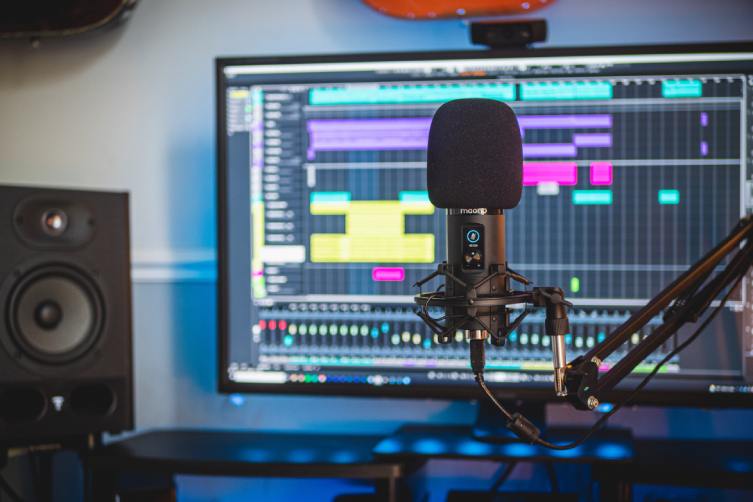
Join a Band
Do you want to improve a ton of guitar skills quickly and at the same time? I have the simplest and best answer for you: join a band. Get in a room with other musicians who all have things they want to express through music as well. Do this, because it’ll teach you these things:
- Your timing will rapidly improve
- You’ll notice that your rhythm work is by far the most important thing you’re doing.
- Guitar tone that sounds good at home isn’t cutting it at rehearsal (and your rehearsal tones do not sound great at home). Boost your mids!
- You need less gain than you think, almost always
- Leaving gaps of silence in your performance is enormously important.
- Guitar solos get pretty boring pretty quickly: short blasts can be thrilling.
- No matter what you do on the guitar, the bassist and drummer have much more say over how the songs sound and feel than you do. Accept this.
- Playing a guitar standing up is an entirely different universe to playing one sitting down. You will be performing standing up, so I hope you’ve been practising standing up!
- Playing with other musicians means compromise, which is sometimes incredible and sometimes agony.
There will doubtless be more great reasons for playing with a band, but these ones are surely enough to sell the idea to you! Bands are difficult things to be in, but the ways in which you’ll grow as a musician are enormous, and certainly make the whole venture worthwhile.

Be Involved
In short, each of my ideas today boil down to a simple point: be involved. Forget the distractions and set about improving the important stuff: namely, your experience of playing music on the guitar. Improvement will occur quickly or not so quickly, depending on which of these ideas you choose to incorporate into your practice, but the thing to understand is this: you’re taking control of your playing life: you are being proactive about trying out new things, you are being brave as a musician and you are choosing fun and joy over staleness and gangrene. You’re a legend!




